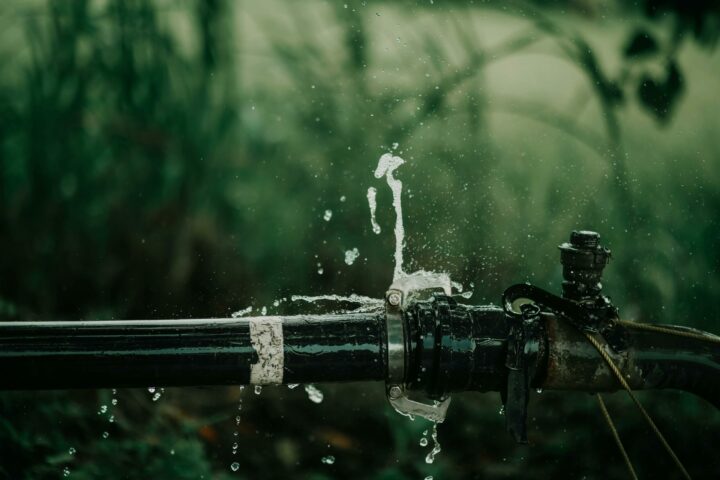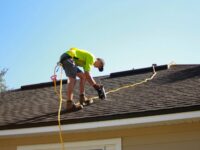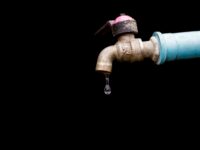The following contribution is from another author.
Water leaks can cause significant damage to your home. They can lead to mold growth, structural issues, and expensive repair bills. However, many water leaks can be prevented with some simple measures. In this article, we will explore various ways to avoid water leaks in your home. By following these preventative measures, you can protect your home and save money in the long run.
1. Regularly Inspect Your Plumbing
One of the best ways to prevent water leaks is to regularly inspect your plumbing system. Check all visible pipes, including those under sinks and behind toilets. Look for signs of corrosion, rust, or any moisture around the pipes. If you notice any issues, address them immediately. It’s also a good idea to hire a professional plumber to inspect your plumbing system annually. A professional can identify potential problems that you might overlook. For DIY enthusiasts, learning the basics of fixing a leaky pipe can be a valuable skill, allowing for quick repairs before the problem escalates.
2. Monitor Your Water Pressure
High water pressure can cause pipes to burst and lead to leaks. You can use a water pressure gauge to check the pressure in your home. The ideal water pressure should be between 40 and 60 psi (pounds per square inch). If your water pressure is too high, consider installing a pressure regulator. This device will help maintain a safe pressure level and prevent damage to your pipes.
3. Install Water Leak Detectors
Water leak detectors are devices that alert you to the presence of water in areas where there shouldn’t be any. These devices can be placed near water heaters, washing machines, dishwashers, and sinks. When a leak is detected, the alarm will sound, giving you an early warning so you can take action. Some advanced models can even send alerts to your smartphone.
4. Maintain Your Appliances
Appliances like washing machines, dishwashers, and water heaters can develop leaks over time. Regular maintenance can help prevent these leaks. Check the hoses and connections for any signs of wear and tear. Replace old or damaged hoses with new ones. For water heaters, drain the tank annually to remove sediment buildup, which can cause the tank to rust and leak.
5. Keep Gutters and Downspouts Clean
Clogged gutters and downspouts can cause water to overflow and seep into your home’s foundation, leading to leaks. Regularly clean your gutters and downspouts to ensure they are free of leaves, dirt, and debris. Consider installing gutter guards to prevent debris from accumulating. Make sure the downspouts direct water away from your home’s foundation.
6. Seal Windows and Doors
Water can enter your home through gaps around windows and doors. Inspect the caulking and weather stripping around your windows and doors. If you notice any cracks or gaps, reseal them with waterproof caulk. Properly sealing these areas will not only prevent water leaks but also improve your home’s energy efficiency.
7. Inspect Your Roof
A damaged roof can allow water to seep into your home, causing leaks. Inspect your roof regularly for missing or damaged shingles, cracks, or other signs of wear and tear. Pay special attention to areas around chimneys, vents, and skylights. If you find any issues, repair them promptly. It’s also a good idea to have a professional roofing contractor inspect your roof annually.
8. Check Your Basement and Crawl Spaces
Basements and crawl spaces are common areas for water leaks. Inspect these areas for any signs of moisture, such as damp walls or floors, mold growth, or a musty smell. Ensure that your sump pump is working properly and consider installing a backup sump pump in case of power outages. You can also apply a waterproof sealant to the walls and floors to prevent water from seeping in.
9. Insulate Your Pipes
In colder climates, pipes can freeze and burst, leading to water leaks. Insulate your pipes, especially those in unheated areas like basements, attics, and garages. Pipe insulation is inexpensive and easy to install. You can use foam pipe sleeves or self-adhesive insulation tape to wrap around the pipes.
10. Be Cautious with Chemicals
Some chemical drain cleaners can be harsh and cause damage to your pipes, leading to leaks. Use these products sparingly and opt for natural alternatives when possible. For minor clogs, try using a plunger or a drain snake. If you frequently experience clogged drains, it may be a sign of a larger plumbing issue that needs professional attention.
11. Know the Location of Your Main Water Shutoff Valve
In the event of a major leak, knowing the location of your main water shutoff valve is crucial. This valve is usually located near where the water line enters your home. Make sure everyone in your household knows where it is and how to shut it off. In an emergency, turning off the main water supply can prevent further damage until the leak is repaired.
12. Maintain Your Lawn and Landscaping
Poor landscaping can lead to water damage in your home. Ensure that the ground around your home slopes away from the foundation to prevent water from pooling. Avoid planting trees and large shrubs near your foundation, as their roots can grow into your pipes and cause leaks. Keep an eye on your sprinkler system for any leaks or malfunctions and repair them promptly.
13. Monitor Your Water Bill
An unexplained increase in your water bill can indicate a hidden water leak. Keep track of your water usage and compare your monthly bills. If you notice a sudden spike in usage, investigate for potential leaks. Check all faucets, toilets, and appliances for any signs of leaking water.
14. Replace Old Plumbing
If you live in an older home, your plumbing system may be more susceptible to leaks due to age and wear. Consider replacing old pipes with new, durable materials like copper or PEX (cross-linked polyethylene). While this can be a significant investment, it can prevent costly water damage and increase the value of your home.
15. Install a Water Softener
Hard water contains high levels of minerals like calcium and magnesium, which can cause buildup in your pipes and lead to leaks. Installing a water softener can help reduce mineral buildup and extend the lifespan of your plumbing system. Regularly check and maintain your water softener to ensure it is functioning properly.
16. Use a Water Pressure Regulator
If your home receives water at a very high pressure, it can strain your plumbing system and cause leaks. A water pressure regulator can help maintain a safe pressure level throughout your home. This device is typically installed where the main water line enters your home. Consult a plumber to install and adjust the regulator to the appropriate pressure.
17. Regularly Inspect and Maintain Your Septic System
For homes with septic systems, regular inspection and maintenance are essential to prevent leaks and backups. Have your septic tank pumped every three to five years to remove sludge and prevent overflow. Avoid flushing non-biodegradable items down the toilet, as they can clog the system and cause leaks.
18. Consider Installing a Whole-House Water Filtration System
A whole-house water filtration system can help remove impurities from your water supply, reducing the risk of pipe corrosion and leaks. These systems are installed at the main water line and filter all the water entering your home. Choose a filtration system that addresses your specific water quality concerns.
19. Be Mindful of What You Flush
Toilet clogs can lead to leaks and water damage. Be mindful of what you flush down the toilet. Only flush human waste and toilet paper. Avoid flushing items like paper towels, feminine hygiene products, and wipes, as they can cause clogs and damage your plumbing system.
20. Keep an Eye on Outdoor Faucets and Hoses
Outdoor faucets and hoses are often overlooked but can be sources of leaks. Check these regularly for any signs of leaks or damage. In colder climates, disconnect and store hoses during the winter to prevent them from freezing and causing damage to the faucets.
By following these preventative measures, you can significantly reduce the risk of water leaks in your home. Regular maintenance and vigilance are key to keeping your plumbing system in good condition and protecting your home from water damage. Remember, addressing small issues promptly can prevent them from becoming major problems in the future.

















cairoaqar
https://www.cairoaqar.com/%D9%82%D8%B1%D9%8A%D8%A9-%D8%AC%D9%85%D9%8A%D9%84%D8%A9-%D8%A7%D9%84%D8%B3%D8%A7%D8%AD%D9%84-%D8%A7%D9%84%D8%B4%D9%85%D8%A7%D9%84%D9%8A-2/